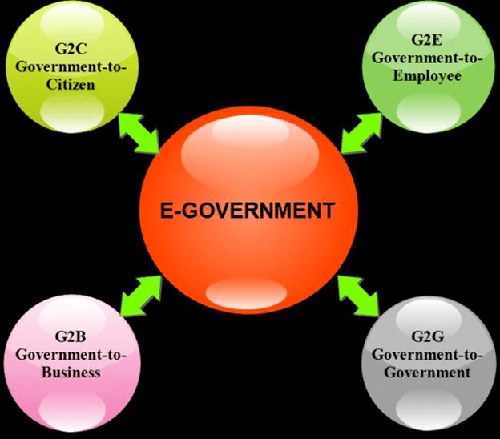
BY MENGISTEAB TESHOME
E-government has become a popular focus of government efforts in many countries around the world. More and more governments have implemented and introduced e-government systems as a means of reducing costs, improving services, saving time and increasing effectiveness and efficiency in the public sector.
Starting from 1990, ICT contributed a very significant part to accelerate and change the traditional government system to be more upgraded and to be automated. The use of ICT in public services especially in government administration areas has played a very significant role to enhance the public services to reach its goal to serve the citizens in socio – economic development. Developed countries who applied an e-government system using information technology skills are numerous benefited from the system to integrate citizens with administration. E-government implementations have come out quickly in the developing countries; this is because of empowering tools to elevate efficiency and increase transparency of organizations.
It is vividly clear that e-government improves the development, information transparency and social participation in Ethiopia to facilitate the transformation of everyday activities of government service and automate working processes. The fact that in Ethiopia there have been numerous project activities initiated to maintain sustainable development in a number of private and public and development partners initiated to support ICT to increase the good governance process.
Of the projects is an EU funded project that aims in supporting the implementation of more convenient e-government services in Ethiopia. The EU funded, Business Environment and Investment Climate including e-government (BEIC) project, Key Expert Team Leader Dr. Alberto Gomez noted that the project aims to improve the business environment and the investment climate to promote the private sector in Ethiopia, in turn bringing more investment.
Through the project, they support the enhancement of the Ethiopian government’s online portals, promising a more direct and convenient access to e-government services, besides creating a sustainable Public Private Dialogue. “There will be more jobs and more opportunities for the people of Ethiopia,” he underlined.
From ensuring government portals’ accessibility by users to enhancing its security features, the project’s activity focuses on improving the user-friendliness of e-government services aligned with globally accepted standards.
He further noted that, in pursuit of this goal, the BEIC team is employing different methodologies conducting a thorough user-based research that aims to identify gaps in the user-friendliness of e-government portals related to the Ease of Doing Business processes in Ethiopia.
The research targets selected government institutions including the Ministry of Revenues, Ministry of Trade and Regional Integration, Ministry of Innovation and Technology and Ethiopian Investment Commission. The project is gathering data by analyzing the performance of e-government portals, reviewing previously conducted customer survey reports, focus group discussions and key informant interviews with IT directorates of selected Ministries, departments and agencies.
The team is expected to present its recommendations to the public sector, serving a variety of different ends by improving e-government service delivery. As part of the research, frequent end users of e-government services were identified from the Ethiopian Chamber of Commerce and Sectoral Associations (ECCSA), Ethiopian Professional Association of Accountants and Auditors (EPAAA) and Customs Clearing Professionals Association (CCPA).
According to him, the BEIC team conducted separate half day consultation workshops with each association in September, 2022 in Addis Ababa. The discussions were insightful as they enabled the participants drawn from the associations to provide critical feedback on the performance of government e-portals. Some of the issues raised include intermittent system connectivity, lack of user training and the need to strengthen government portal systems to mitigate security risks and threats.
The inputs obtained from the workshops will be used to enhance the user friendliness of government portals, making it easier for enterprises as well as citizens to deal with administrative procedures and benefit from more friendly, easy to use and improved e-services.
Amina Sherefa EPAAA Finance manager, for her part said that it is ideal time to develop a portal with various domains to ensure business friendly services, this in turn beckons investments. “The training on designing a user friendly portal let me know a lot, because it saved my time and finances. Though there are commendable efforts, in realizing digital services in the public and private sector, still stakeholders should work more than ever before. In my view, the government should put in place mandatory directions on pertinent stakeholders to develop a portal and inform the community to the end users through media,” she said.
According to her, the government should urge all private and public as well development partners’ institutions to use an active portal.
She further said that as history tells, a closed market only facilitates bribery and corruption in the public sector and government. Business and citizens can obtain information at a faster speed and it is possible at any time of the day.
The society is moving towards mobile connections and the ability of an e-government service to be accessible to citizens irrespective of location throughout the country brings the next and potentially biggest benefit of an e-government service as we live in what is now termed as the Knowledge worker era.
“The project should incorporate more institutions to support them to design user-friendly portals and extend human capital development and the building facilities.”
In my view, the anticipated benefits of e-government include efficiency, improved services, better accessibility of public services, and more transparency and accountability, if it is being implemented in the right way.”
Customs clearing General Manager, Gebissa Ejerso also noted that these days the market and other services are becoming online and it is high time to ensure accessibility.
It is high time to ensure digital service in all service provisions, the efforts to put in place digital services are promising, but efforts to create an informed society should be strengthened.
“The world becoming a village and the technology advancement has brought safer and easy as well reliable system that we all should join. I have gained skills and knowledge from the project.” Stakeholders should dream of making Ease of Doing Business simple and reliable.
BEIC, the EU funded program being implemented by GIZ International Services in partnership with McKinsey and amp; Company, aims to support reforms to improve the Ease of Doing Business in Ethiopia.
The Ethiopian Herald October 19/2022




